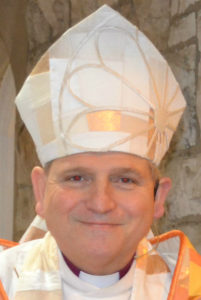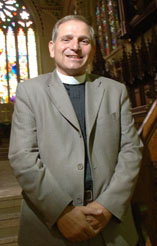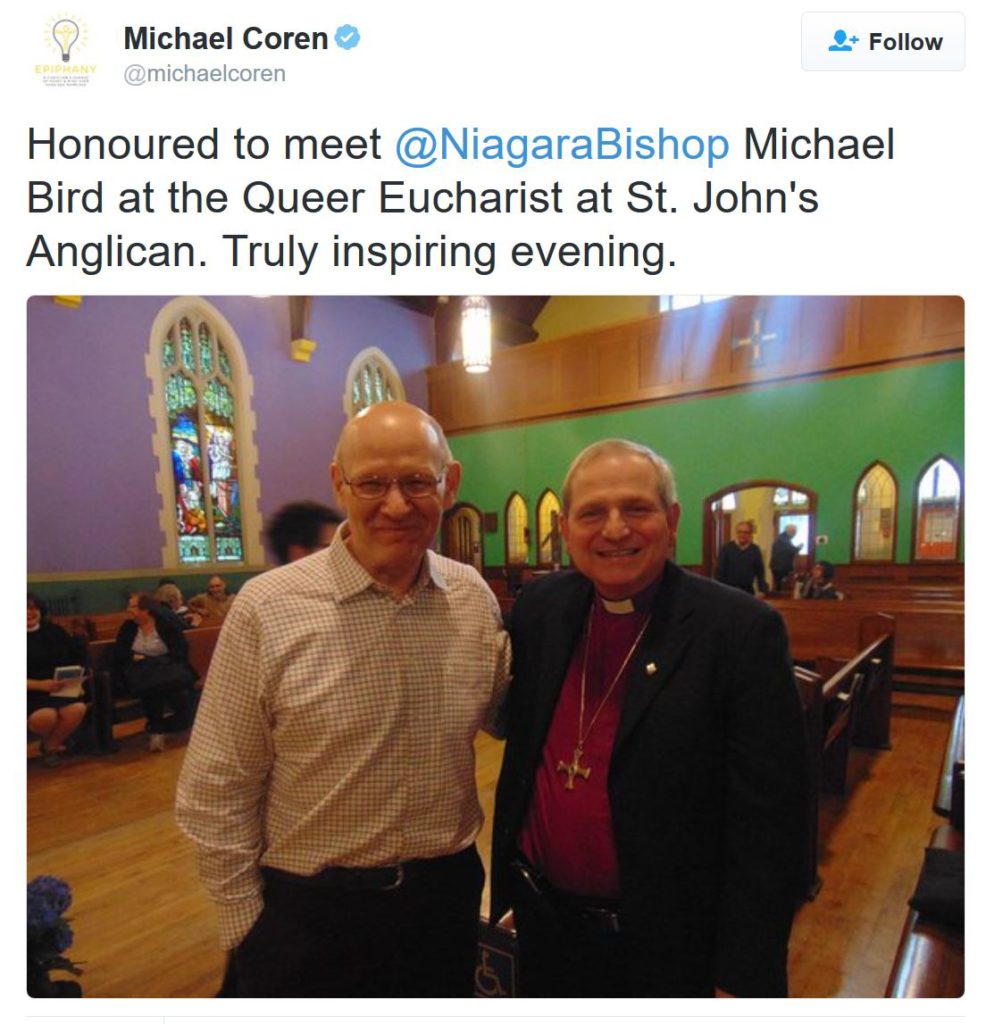Michael Bird, having resigned as Bishop of the Diocese of Niagara, has just completed his final bishop’s charge.
In the charge, he laments the anxieties thrust upon him by dissenting Anglicans immediately following his consecration – during which he processed to the strains of the Beatles’ “All You Need is Love”, an inverse harbinger of things to come – and congratulates himself and the diocese on “having stood our ground”, including ejecting the dissenters from their buildings, seizing, and in some cases selling the buildings and successfully prosecuting a string of lawsuits. And no one in the diocese had to pay any legal fees!
Where did the money come from? Selling St. Hilda’s property and rectory for $2,650,000 probably helped.
 From here:
From here:
In the days preceding this celebration, local and national newspapers and media spoke of the conflict and division in the life of the Anglican Church. The Toronto Star had a running commentary on the status of three breakaway parishes in our diocese. On February 20, the headlines read as follows: “Breakaway Anglicans asked to hand over keys.” On February 28, it was announced that “Talks with dissident Anglican parishes end,” and then on March 3, the day after my installation, a picture appeared in newspapers across the country with the caption reading: “A House of worship divided.”
The Toronto Star article went on to say that: “For Niagara Bishop Michael Bird, the court case opened on his first official day in office – he spent the day in court and talking to reporters outside – [this issue] threatens to dominate his entire time in office.”
If this were not enough, 2008 was the year that the economy crashed or at the very least took a dramatic down turn. With this loss of investment money, mounting court and legal fees and a multi-million-dollar debt we had some major and painful financial decisions to make. One of the things that I am most grateful for, as we gather here today, is that we find ourselves in a sound financial position and that having stood our ground and brought our legal proceedings to a successful conclusion, not one cent of those court costs was paid for out of the collection plates of our parishes.


 As the eleventh Bishop of Niagara, Bishop Bird has borne witness to God’s transformational and inclusive love. He led the diocese to create a new vision for its ministry that includes a focus on prophetic social justice-making, life-changing worship, and leadership development. Bishop Bird is a strong and progressive voice within the Anglican Church of Canada on issues related to the inclusion of members of the LGBTQ2 community, the alleviation and eradication of poverty, the truth and reconciliation process with Indigenous peoples, and the global refugee crisis.
As the eleventh Bishop of Niagara, Bishop Bird has borne witness to God’s transformational and inclusive love. He led the diocese to create a new vision for its ministry that includes a focus on prophetic social justice-making, life-changing worship, and leadership development. Bishop Bird is a strong and progressive voice within the Anglican Church of Canada on issues related to the inclusion of members of the LGBTQ2 community, the alleviation and eradication of poverty, the truth and reconciliation process with Indigenous peoples, and the global refugee crisis. From
From 

